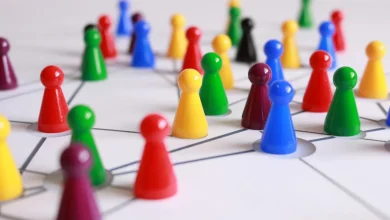Hobbies: The Key to Work-Life Balance

Introduction
Imagine coming home after a long day at work, feeling drained and stressed. Now, picture yourself picking up a paintbrush, strumming a guitar, or lacing up your running shoes. Suddenly, the weight of the day starts to lift. This is the power of hobbies – a often overlooked key to achieving true work-life balance.
In today’s fast-paced world, finding equilibrium between our professional and personal lives can feel like an uphill battle. We’re constantly connected to our work through smartphones and laptops, making it hard to switch off. But what if the solution to this modern struggle was simpler than we thought?
Hobbies, those activities we do purely for enjoyment, might just be the missing piece in our quest for a balanced life. They offer more than just fun – they provide a crucial counterbalance to the demands of our work lives.
In this article, we’ll explore how hobbies can be your secret weapon in achieving and maintaining a healthy work-life balance. Get ready to discover why that painting class, book club, or weekend hike might be more important than you ever realized.
Understanding Work-Life Balance
What is Work-Life Balance?
Work-life balance is the state of equilibrium where a person equally prioritizes the demands of one’s career and the demands of one’s personal life. It’s about creating harmony between work responsibilities and personal activities, including family time, hobbies, and self-care.
Common Challenges in Achieving Balance
Achieving this balance isn’t always easy. Some common hurdles include:
- Technology overload: Constant connectivity makes it hard to ‘switch off’ from work.
- Increased work expectations: Many jobs now demand more than the traditional 9-to-5.
- Personal commitments: Family responsibilities, social obligations, and personal goals can compete for our limited time.
- Lack of boundaries: Difficulty in saying ‘no’ to work requests outside of work hours.
The Consequences of Poor Work-Life Balance
When we fail to maintain a healthy work-life balance, the effects can be far-reaching:
- Physical health issues: Chronic stress can lead to problems like high blood pressure, digestive issues, and a weakened immune system.
- Mental health struggles: Burnout, anxiety, and depression are common outcomes of prolonged imbalance.
- Strained relationships: Overworking can lead to neglecting important personal relationships.
- Reduced job performance: Ironically, overworking often leads to decreased productivity and job satisfaction.
Understanding these challenges and consequences is the first step towards recognizing the importance of work-life balance. In the next section, we’ll explore how hobbies can play a crucial role in achieving this balance.
The Power of Hobbies
What Constitutes a Hobby?
A hobby is any activity that you do regularly for enjoyment during your free time. It’s something you choose to do, not because you have to, but because you want to. Hobbies are personal interests that bring joy, relaxation, and often a sense of achievement.
Types of Hobbies
Hobbies come in all shapes and sizes. Here’s a brief list of different types:
- Creative hobbies: Painting, writing, photography, music
- Physical hobbies: Sports, dancing, yoga, hiking
- Intellectual hobbies: Reading, learning languages, puzzles
- Collecting hobbies: Stamps, coins, antiques
- Social hobbies: Book clubs, team sports, volunteering
Benefits of Engaging in Hobbies
Hobbies offer a wide range of benefits that can positively impact your overall well-being:
- Stress relief: Hobbies provide a mental break from work-related stress
- Improved mood: Engaging in enjoyable activities boosts happiness and life satisfaction
- Enhanced creativity: Many hobbies stimulate creative thinking
- Better work performance: Skills learned through hobbies often transfer to professional life
- Increased self-esteem: Mastering a hobby can boost confidence
- Expanded social network: Many hobbies provide opportunities to meet like-minded people
- Improved physical health: Active hobbies contribute to better physical fitness
How Hobbies Contribute to Work-Life Balance
Stress Reduction and Relaxation
Hobbies act as a powerful buffer against work-related stress. When you engage in an activity you enjoy, your body releases endorphins, the “feel-good” hormones. This natural stress-reliever helps you unwind and forget about work pressures, even if just for a short while.
For example, gardening can be a form of mindfulness practice. As you focus on planting or weeding, your mind shifts away from work concerns, allowing you to relax and recharge.
Skill Development and Personal Growth
Many hobbies offer opportunities to learn new skills that can translate to your professional life. For instance:
- Photography can improve your visual communication skills, useful in presentations or marketing.
- Creative writing can enhance your overall communication abilities, beneficial in various work scenarios.
- Chess can sharpen strategic thinking and problem-solving skills, valuable in many professional fields.
These transferable skills not only make you more effective at work but also boost your confidence and job satisfaction.
Time Management and Structure
Incorporating hobbies into your routine helps create clear boundaries between work and personal life. When you have a hobby you’re passionate about, you’re more likely to:
- Set firm end times for work to ensure you have time for your hobby
- Use your time more efficiently during work hours to protect your hobby time
- Create a more structured daily routine that includes dedicated time for work, hobbies, and other personal activities
This structure is key to maintaining a healthy work-life balance.
Social Connections and Support Networks
Many hobbies involve social interaction, which is crucial for mental health and work-life balance. Hobby-related communities provide:
- Support systems outside of work
- Opportunities to build relationships with people who share your interests
- A sense of belonging that’s separate from your professional identity
These social connections can serve as a support network during stressful times at work, offering perspective and emotional support.
By understanding how hobbies contribute to work-life balance, you can see why they’re more than just ‘fun activities’. They’re essential tools for creating a more balanced, fulfilling life. In the next section, we’ll explore how to integrate hobbies into your life effectively.
Integrating Hobbies into Your Life
Identifying the Right Hobby for You
Finding the right hobby is crucial for maintaining long-term interest and reaping the full benefits. Here’s a quick checklist to help you identify potential hobbies:
- [ ] What activities did you enjoy as a child?
- [ ] What subjects or topics fascinate you?
- [ ] Do you prefer solitary activities or group interactions?
- [ ] Are you drawn to physical activities or more cerebral pursuits?
- [ ] What skills would you like to develop?
- [ ] How much time can you realistically dedicate to a hobby?
Remember, the best hobby for you is one that you’ll look forward to and stick with over time.
Overcoming Common Obstacles to Starting a Hobby
Many people struggle to start or maintain a hobby. Here’s a table of common obstacles and potential solutions:
| Obstacle | Solution |
|---|---|
| Lack of time | Start small: dedicate just 15-30 minutes a day to your hobby |
| Limited budget | Look for free or low-cost options (e.g., hiking, reading, or learning online) |
| Feeling too tired | Choose a hobby that energizes you or schedule it for your peak energy time |
| Fear of failure | Remember, hobbies are for enjoyment, not perfection. Embrace the learning process |
| Overwhelmed by choices | Try a few different activities before committing to one |
Tips for Maintaining Consistency in Hobby Practice
- Schedule it: Treat your hobby time as you would any important appointment.
- Set realistic goals: Start small and gradually increase your commitment.
- Join a group: Having others who share your interest can boost motivation.
- Track your progress: Keep a log or journal to see how far you’ve come.
- Mix it up: Explore different aspects of your hobby to keep it fresh and exciting.
- Share your hobby: Talking about your hobby with others can increase your enthusiasm.
- Be patient: Remember that skills take time to develop. Enjoy the journey!
The Ripple Effect: How Hobbies Improve Work Performance
Engaging in hobbies doesn’t just benefit your personal life; it can significantly enhance your work performance too. Let’s explore how:
Increased Creativity and Problem-Solving Skills
Hobbies often require creative thinking and problem-solving, skills that directly translate to the workplace. For example:
- A jigsaw puzzle enthusiast might become better at seeing the big picture in complex work projects.
- An amateur photographer might develop a keen eye for detail, useful in quality control or design work.
- A gardener might cultivate patience and long-term planning skills, valuable in project management.
These creative skills can help you approach work challenges from new angles, leading to innovative solutions.
Enhanced Focus and Productivity
Regular engagement in hobbies can improve your ability to concentrate. Here’s how:
- Hobbies often require sustained attention, training your brain to focus for longer periods.
- The mental break provided by hobbies can help you return to work with renewed focus.
- Flow states experienced during hobbies can transfer to work tasks, increasing productivity.
For instance, if you practice meditation as a hobby, you might find it easier to maintain focus during long meetings or complex tasks at work.
Improved Job Satisfaction and Reduced Burnout Risk
Hobbies contribute to overall life satisfaction, which in turn affects your attitude towards work:
- They provide a sense of accomplishment outside of work, reducing the pressure to derive all your self-worth from your job.
- Hobbies offer stress relief, making you more resilient to work pressures.
- The skills and confidence gained from hobbies can make you feel more capable at work.
For example, if you’re part of a community theater group, the sense of belonging and creative expression might help you feel more fulfilled overall, making work stress easier to handle.
By improving your creativity, focus, and overall satisfaction, hobbies create a positive ripple effect that extends into your professional life. This reinforces the crucial role they play in achieving true work-life balance.
Real-Life Success Stories
Let’s look at some inspiring examples of individuals who have successfully improved their work-life balance through hobbies:
Sarah: The Stressed Executive Turned Yoga Enthusiast
Sarah, a high-powered marketing executive, was constantly stressed and on the verge of burnout. She decided to try yoga as a way to unwind. What started as a twice-weekly class soon became a passion. Sarah shares:
“Yoga taught me to be present and mindful. I started applying these principles at work, leading to better focus and decision-making. Plus, having a non-negotiable ‘yoga time’ helped me set better boundaries at work.”
Lesson learned: Sometimes, the skills we learn in our hobbies can directly improve our work performance and help us manage stress.
Mike: The Programmer Who Found Balance in Gardening
Mike, a software developer, spent most of his day in front of a screen. He took up gardening on a whim and found it transformative:
“Gardening gets me outside and away from technology. It’s meditative and gives me a sense of accomplishment different from my work. I’ve noticed I’m more patient with debugging code now – I understand some things just take time to grow and develop.”
Lesson learned: Hobbies that contrast with your work can provide a much-needed mental break and fresh perspective.
Elena: The Teacher Who Reignited Her Passion Through Writing
Elena, an elementary school teacher, felt her creativity waning after years in the classroom. She started a blog about her travels:
“Writing about my adventures reignited my creative spark. I found myself bringing more engaging, story-based lessons to my students. Plus, having something that’s just for me has made me feel more fulfilled overall.”
Lesson learned: Pursuing a creative hobby can revitalize your enthusiasm for your career and bring new ideas to your work.
Conclusion
Throughout this article, we’ve explored the often-overlooked yet crucial connection between hobbies and work-life balance. Let’s recap the key points:
- Hobbies are not just pastimes; they’re essential tools for achieving work-life balance.
- They offer numerous benefits, including stress reduction, skill development, and improved time management.
- Hobbies can have a positive ripple effect on your work performance, enhancing creativity, focus, and job satisfaction.
- Integrating hobbies into your life requires some effort, but the rewards are well worth it.
- Real-life examples show how hobbies can transform both personal and professional lives.
Remember, achieving work-life balance is not about rigidly dividing your time between work and personal life. It’s about creating a harmonious blend where both aspects of your life complement and enrich each other. Hobbies serve as a bridge between these two worlds, offering a way to recharge, grow, and find fulfillment outside of work.
As you move forward, consider this: What hobby could you explore or rediscover? Whether it’s learning a new language, taking up photography, or simply reading more books, there’s a world of possibilities waiting for you.
Embracing a hobby isn’t just about having fun (although that’s important too!). It’s about investing in yourself, your well-being, and ultimately, in your ability to lead a more balanced and satisfying life.
Call-to-Action
Now that you understand the power of hobbies in achieving work-life balance, it’s time to take action:
- Reflect on your interests: Take a few minutes to jot down activities you’ve always wanted to try or skills you’d like to develop.
- Start small: Choose one hobby and commit to spending just 15-30 minutes on it this week.
- Share your experience: We’d love to hear about your journey! Share your chosen hobby and how it impacts your work-life balance in the comments below.
- Spread the word: If you found this article helpful, share it with friends or colleagues who might be struggling with work-life balance.
- Keep exploring: Remember, finding the right hobby might take some trial and error. Don’t be afraid to try new things!
By taking these steps, you’re not just starting a hobby – you’re taking a significant step towards a more balanced, fulfilling life. Your future self will thank you for it!


